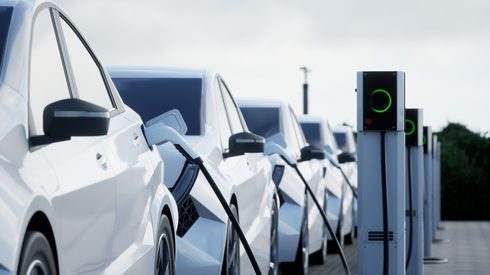A reported surge in interest in electric vehicles (EVs) prompted by the ongoing UK fuel supply crisis is unlikely to result in a significant switch away from combustion vehicles, industry sources told Fastmarkets EnergyCensus.
Media reports this week pointed to an upsurge of interest in EVs following panic-buying of fuel, which prompted the government to suspend competition rules and enable fuel providers to better co-ordinate deliveries to top up forecourt fuel supplies.
Senior research fellow at the Oxford Institute of Energy Studies Malcolm Keay told Fastmarkets EnergyCensus that the fuel supply crunch should help the EV cause, “both in showing that range anxiety isn’t just an issue for EVs and in reminding people that EVs are much cheaper to run.”
However, this may not be enough to support a mass switch from combustion vehicles.
Not enough incentive
“I don’t think this will translate into more than a 1% or 2% difference in the volume of electric cars sold for the very simple reason that by the weekend this will be a non-issue and also due to the fact that there are plenty of fuel stocks around,” independent consultant at JouleVert Colin Matthews said.
Sources told Fastmarkets EnergyCensus earlier this week that the problem did not come down to production issues, given the high availability of fuel in the UK, but supply problems caused primarily by an ongoing heavy goods vehicle (HGV) driver shortage, which led to a lack of supply at some forecourts and subsequent bouts of panic buying.
Keay went on to say that the supply crunch is unlikely to make that much difference to EV sales unless the fuel crisis continues for an extended period, which “is possible but not probable.”
A network of uncertainty
While the situation currently shows no signs of easing, “there are still the fundamental problems of the high cost of EVs, the limited number of charging points, and the time taken to charge up,” Keay said, adding that the switch remains fairly unlikely at the moment, “unless people have the ability to charge at home.”
“Then you have the extra cost (around £10k more than a regular car) and deciding how you will use the car – these vehicles are fine for commuting each day and charging up at night but not necessarily good for long-distance travel,” Keay said, describing the situation as “a whole network of uncertainty.”
Norway’s Rystad Energy said the crunch in fuel forecourt supplies could accelerate the switch to EVs, stating that the crisis could “naturally increase” the probability of people making the change to electric.
Performance and infrastructure
“With an ever-increasing selection of models and improved public perception of EV performance, this event is very likely to accelerate the adoption of EVs in the UK,” Rystad’s senior vice president and head of energy systems told Fastmarkets EnergyCensus.
While Foss said the events of this week “probably won’t shift people’s preference overnight, [this will] definitely steepen the EV s-curve in the UK.”
Rystad estimates show that the EV market share in UK was at 15% in the second quarter of the year, and has noted strong growth in the majority of the European markets, for which “we would expect black swan events such as this to accelerate the adoption of EVs,” Foss said.
When it comes to EV charge points, Foss told Fastmarkets EnergyCensus that limited charging infrastructure “doesn’t seem to have any meaningful impact on the pace of EV adoption.”
In Norway, where the EV market share was around 83% in the second quarter of the year and above 90% in August, most people rely on home-charging.
“This is obviously a bit more tricky if you live in an apartment, but still, and most of what has been built in Norway has been built purely from a commercial standpoint, for example, when the demand for chargers is there, the industry delivers,” Foss concluded.
This article, by Alexandra Chapman, was first published to energycensus.com on Thursday September 30.
For the latest insights into the energy transition market, visit our dedicated hub for regular price analysis, news and expert outlooks.





